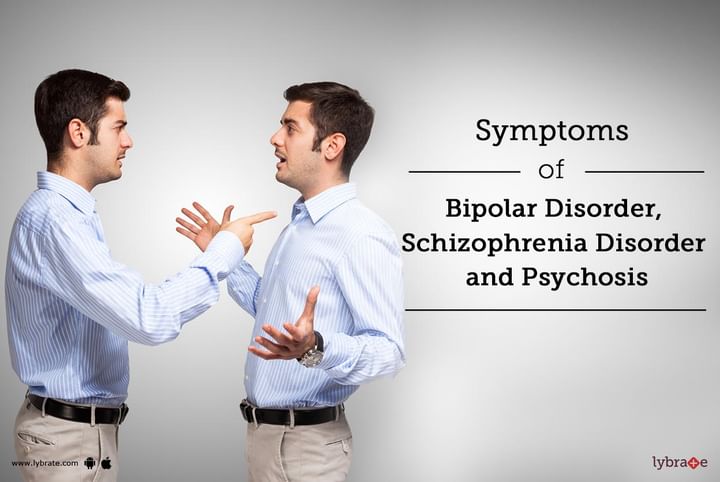Symptoms of Bipolar Disorder, Schizophrenia Disorder and Psychosis
Bipolar disorder: Also known as manic-depressive disorder, bipolar disorder is the sudden change in mood, which might take a swing from depression to mania. It is a very severe disorder and can bring about unstable and precarious behavior. The risk of having suicidal tendencies is also quite high. Bipolar disorder is usually treated with medicines alongside therapy.
Symptoms:
- Bipolar mania
- Hypomania
- Depression
- Mood swings
The mood swings do not follow any particular pattern.
Schizophrenia Disorder: Schizophrenia is a chronic mental disorder which affects the general behavior and lifestyle of a person. Schizophrenics might face a difficulty in distinguishing between the real and the imaginary.
Contrary to public belief, schizophrenia is neither split personality nor multiple personalities. It is not an after effect of any previous traumatic experience. It might be genetic or a result of chemical imbalance in the brain chemicals.
Symptoms:
- Paranoia
- Senseless talking
- Feeling apathetic
- Insomnia
- Personality change
- Hallucinations
- Delusions
- Withdrawal from society
- Attention deficit disorder or add
No specific medicine is available for schizophrenia. Usually, rehabilitation is advised to regain confidence and recover skills required for a productive life.
Psychosis: Similar to schizophrenia, psychosis is another mental disorder which is characterized by hallucinations and delusions. Psychosis is extremely dangerous and harmful as it might spur you to cause self-inflicted wounds and pain. It is of utmost importance to consult a doctor immediately after experiencing psychotic symptoms.
Symptoms:
- Hallucinations
- Delusions
- Depression
- Anxiety
- Suspicion
- Insomnia or hypersomnia
- Withdrawal from society
- Attention deficit disorder or add
- Attention deficit hyperactivity disorder or ADHD
The only available diagnosis for psychosis is a psychiatric evaluation. Certain medical tests and x-rays may also be executed along with it to detect the underlying cause. Psychosis may be caused due to Parkinson's disease, Huntington's disease, brain tumors, Alzheimer's disease, epilepsy, etc.
Although there aren't any medical complications in psychosis, it should not be left untreated due to its harmful effects. Medication and therapy are the known cures of psychosis.



+1.svg)
